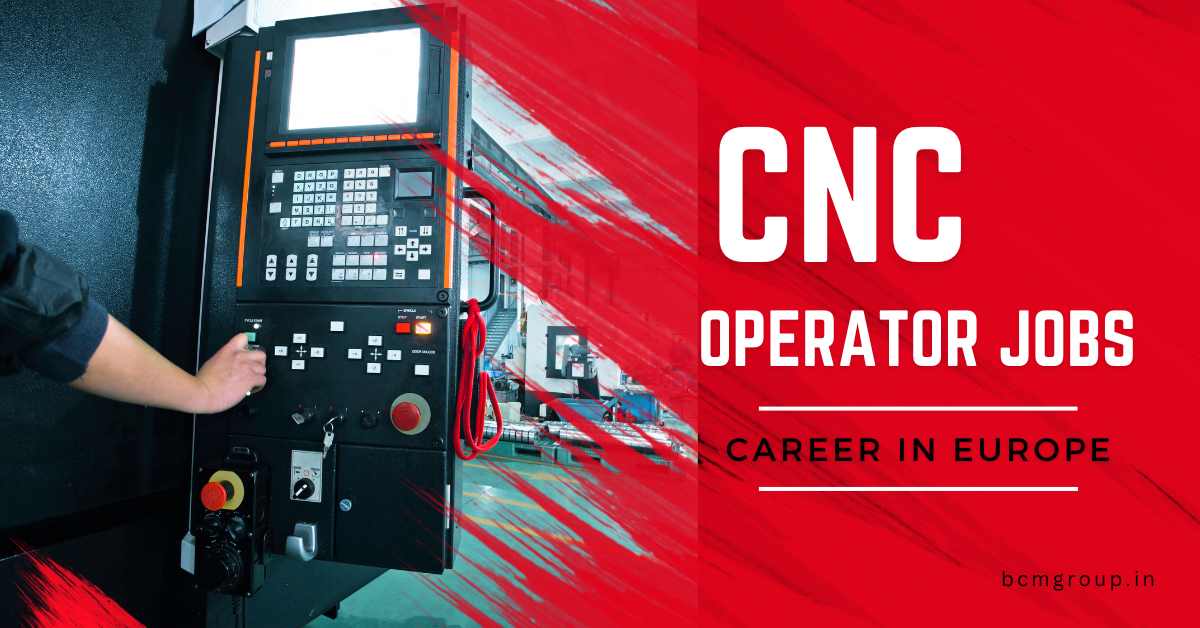In the realm of modern manufacturing, CNC Operators are indispensable professionals who orchestrate the seamless operation of machinery. CNC Operators job As the backbone of production processes, these skilled individuals ensure precision, efficiency, and safety in manufacturing environments.
What’s the Potential Income for a CNC Operator?
- Although the U.S. Bureau of Labor Statistics (BLS) compensation estimates suggest that the average is closer to $22 to $25 per hour, the national average for a CNC operator pay is roughly $20 per hour.
- The typical pay may differ from one state or from one city to the next. But a CNC operator should expect to make between $37,510 and $50,630 annually.
- Because this job demands more experience, CNC machinist pay are often higher than those of CNC operators. The majority of CNC machinists and setup operators earn between $23 and $29 per hour, according to the BLS. Accordingly, the typical yearly compensation for set-up operators ranges from $47,730 to $60,040.
- The pay for CNC machinist programmers is even greater than that of a typical CNC operator or machinist. The BLS estimates that the national average salary for a CNC machinist programmer is between $60,780 and $76,540 annually.
Understanding the CNC Operator Role
CNC Operators are the maestros behind the scenes, meticulously configuring and monitoring computer-controlled machinery to produce intricate components. Let’s delve into their key responsibilities:
CNC Operators : Delving into Duties
- Studying Materials and Specifications: Before initiating operations, CNC Operators meticulously analyze materials and project specifications.
- Interpreting Blueprints and Mechanical Drawings: They decode intricate blueprints and mechanical diagrams to comprehend the manufacturing requirements.
- Translating Instructions into Computer Commands: Utilizing specialized software, CNC Operators translate design specifications into precise machine instructions.
- Setting Up and Installing Tools and Attachments: They skillfully install and calibrate cutting tools and attachments for optimal performance.
- Calculating Requirements: Precision is paramount; thus, CNC Operators calculate material and tooling requirements with meticulous accuracy.
CNC Operators : Ensuring Smooth Operations
- Preparing and Loading Raw Materials: From metals to plastics, CNC Operators adeptly prepare and load raw materials onto machines for processing.
- Planning Stock Inventory and Ordering Parts: They maintain meticulous inventory records and reorder supplies to ensure uninterrupted production flow.
- Documenting Actions: Every step is documented meticulously, ensuring traceability and quality control throughout the manufacturing process.
CNC Operators: Safety and Supervision
- Conducting Daily Machinery Checks: Prioritizing safety, CNC Operators perform comprehensive machinery checks to identify and rectify any anomalies.
- Following Safety Procedures and Regulations: Adhering to stringent safety protocols, they mitigate risks and uphold a secure work environment.
- Supervising Machine Operations: With vigilance, CNC Operators monitor machine performance, promptly addressing any deviations to maintain optimal efficiency.
CNC Operators: Essential Qualifications and Skills
To excel in the role of a CNC Operator, certain qualifications and skills are paramount:
Technical Proficiency
- Ability to Operate CNC Mills: Mastery over CNC milling machines is essential for executing precision manufacturing tasks.
- Great Computer Skills: Proficiency in operating computerized systems and software is a prerequisite for CNC Operators.
- Attention to Detail: Precision and accuracy are non-negotiable; thus, a keen eye for detail is indispensable.
- Strong Team Player: Collaborative spirit fosters efficiency and synergy within manufacturing teams.
- Self-Motivation: Initiative and self-drive are essential traits for navigating the dynamic landscape of CNC operations.
CNC Operator Jobs In Europe For Indian:
Explore Opportunities with BCM Group Recruitment Services
Embarking on a career journey as a CNC Operator? Look no further than BCM Group Recruitment Services, your gateway to fulfilling career opportunities in Europe. Our commitment to excellence ensures that you receive top-notch professionals who meet your specific requirements. We help you to get your dream job to Europe. You can check our services by visiting our homepage and filling out all necessary details. Alternatively, they can contact you directly via phone or email, and our team will assist you to get your job to European countries.
Conclusion:
In the realm of manufacturing, CNC Operators are the architects of precision and efficiency. With the right blend of skills, training, and determination, you can embark on a rewarding career journey in CNC machining.
2024 | Explore Abroad Job Opportunities for CNC Milling Operator
2024 CNC Operator Jobs in Croatia: Huge demand In Europe
CNC Programmer: What Is It? (Tasks, Skills And Qualifications)
FAQ:
Q1. What educational background is required to become a CNC Operator?
To excel as a CNC Operator, a blend of technical education and hands-on training is essential. While formal education in machining or engineering is beneficial, practical experience and specialized training programs are equally valuable.
Q2. Is CNC machining a promising career path?
Absolutely! With the rise of advanced manufacturing technologies, the demand for skilled CNC Operators continues to soar. This career path offers stability, growth opportunities, and the chance to contribute to cutting-edge industries.
Q3. How can I enhance my CNC machining skills?
Continuous learning and upskilling are key. Explore advanced training programs, attend workshops, and seek mentorship opportunities to refine your skills and stay abreast of industry advancements.
Q4. What industries require CNC Operators?
CNC Operators play a pivotal role across diverse industries, including aerospace, automotive, healthcare, and electronics manufacturing, among others.
Q5. Are there any safety considerations in CNC machining?
Absolutely. Safety is paramount in CNC machining. Operators must adhere to strict safety protocols, wear appropriate personal protective equipment (PPE), and undergo comprehensive training on machine operation and hazard mitigation.
